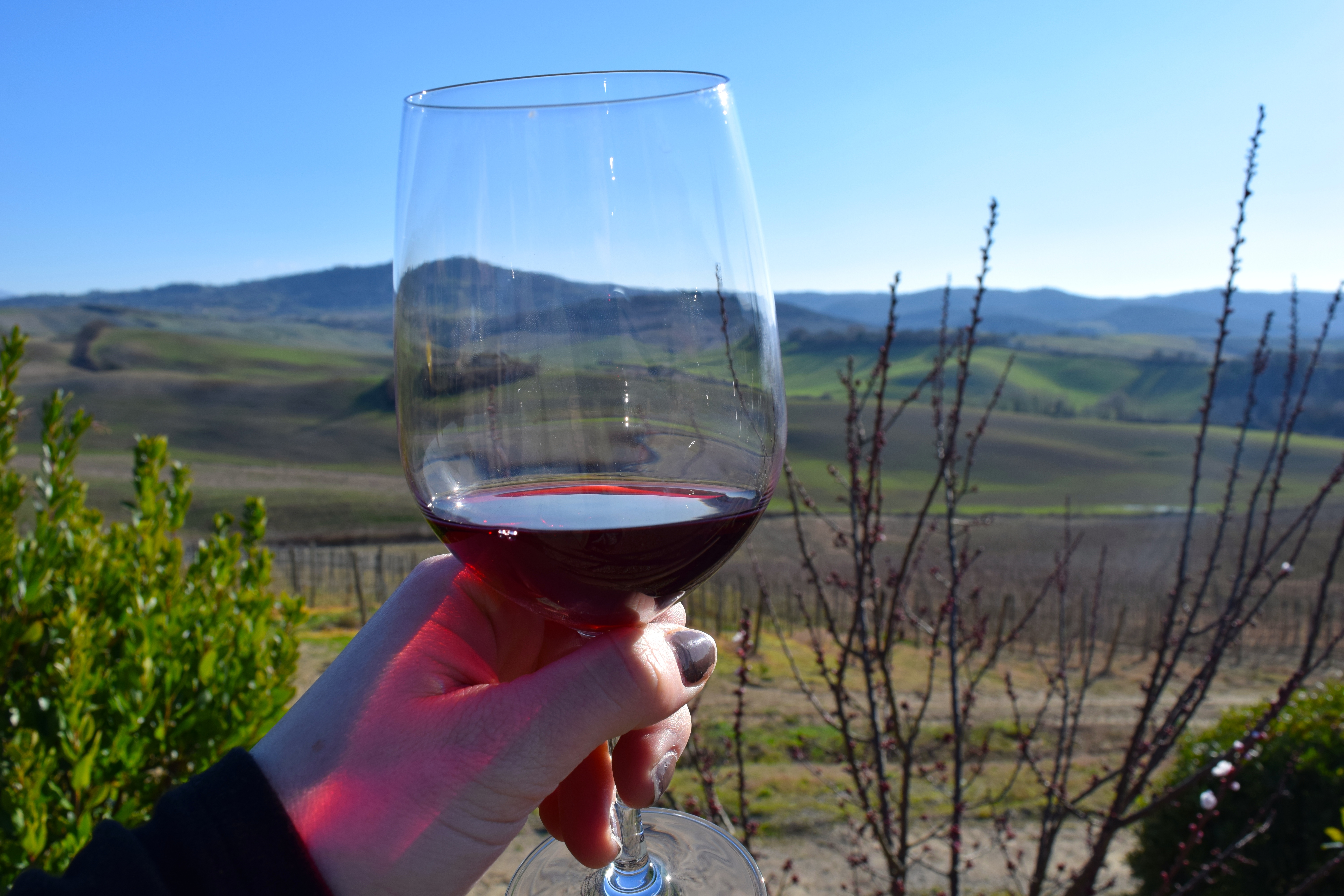By Claire Raddatz, Edited by Abby Los
My name is Claire Raddatz and I am a senior Journalism major. I studied abroad in Rome in the Spring of 2015, and I wrote this piece after a trip to Montepulciano in Tuscany, Italy. My grandfather is Italian and holds on very dearly to our heritage. When I visited a small vineyard in the Italian countryside, I discovered the same passion that I see in my Gampy that I see in the winemakers. This experience made me finally feel connected to this foreign country I was living in.
I had high hopes as I boarded the bus to Tuscany. It wasn’t just about the rolling hills or the world-class wines. It wasn’t even about the cliché of being “under the Tuscan sun.” The sun was shining and the hills were rolling, but I was looking for something more than a wine-buzzed afternoon.
There’s something about a good wine that seems to deliver passion. The taste, the careful process, the tradition and the cultural meanings all taste like passion—a passion that I saw in my Italian grand- father. Let me clarify, I am no wine connoisseur, just a 21-year-old who still hesitates to order more than a vodka lemonade at the bar. But I know wine is something special —or at least more special than vodka lemonades—by the way my Gampy has al- ways lit up at the opportunity to share it with his grandchildren.
To preserve the appreciation for our Italian heritage, Gampy would sneak us glasses of wine at Christmas or a summer barbeque long before our parents would have allowed it. These favors were not without a price. He would take us through the entire tasting process, swirling it in the glass, checking the legs for acidity, sniffing it for notes of blackberry or licorice or chocolate, then finally sipping it and savoring it on our palette. After he’d had a few, he could talk about wine making for hours before my Gammy would gently try to change the subject to golf or the Powerball.
I never really understood his passion, beyond the fact that it was connected to his birthplace. It almost seemed frivolous to care so much about an alcoholic drink. I hoped upon coming to Italy that I would feel that passion and connection to one of my distant roots.
We arrived in Montepulciano at the Winery Gattavecchi, greeted by a sweet older woman named Daniela. She was bundled up in thick winter clothes and apologized profusely for the heavy wind that day. We descended into the cellar, the 12th century convent of Padre Serviti, which had been rebuilt as the family business. Daniela explained that the underground stone, cave-like space helped keep a constant cool temperature and humidity for the wine to mature. I thought it felt rather cozy.
Giant oak barrels occupied the room, along with corks and empty bottles ready to be filled. She explained that the family has to buy new oak barrels every few years in order to keep the oaky flavor in the more aged wines. There is a careful balance between the contents of the wine and the length of time it spends aging and moving from larger barrels to smaller barrels to maintain a certain purity and consistency of taste. They meticulously check these barrels every day for ensured perfection. And when they are satisfied, they fill the bottles by hand, to assure nothing contaminates their wine. “Integrità!” Daniela exclaimed. “The most important thing about our wine.”
We gathered upstairs in an intimate dining room with long tables covered with bread, fresh olive oil, cold cuts and fine cheeses. Empty crystal clear wine glasses lined the table, waiting to be filled with the ruby drink. We began to snack, anxiously awaiting the first sip.
Daniela did not think this should happen so fast. Instead, she walked around with her decanter that looked just like the one Gampy brings to every family gathering. She filled glass after glass with Vino Nobile de Montepulciano, a wine named for its royal status in ancient Italy, insisting that we all try it together. Her eyes lit up as she instructed us to hold a white plate behind the glass to inspect the color—a rich, glimmering deep red. We swirled it in the glass, looked for legs and sniffed for flavor notes.
“This wine,” she beamed, “is the fruit of this land. What you are about to drink is only the Prugnolo Gentile grapes from our Montepulcia- no estate, the plums and berries from our trees. By tasting this wine, you are tasting the land on which we live.”
And with that, we raised our glasses and drank. I swirled it on my tongue as Gampy had taught me, the sweet grape and plum flavors with the oaky bitterness coming alive. She encouraged us to feel the warmth of the wine as it went down our throats, and the warmth that it brought to our bodies.
The contentment and joy in the room as everyone conversed and laughed and indulged was palpable. Daniela walked around, hugging and laughing and making us feel as if we were now a part of her family tradition. “This is why we love wine,” she giggled. “Wine makes everyone happy.”




